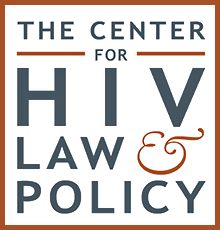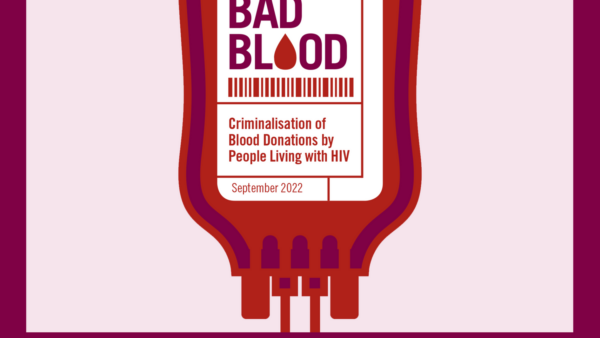Overview
Minnesota does not have any HIV-specific criminal laws, however people living with HIV can be prosecuted under a general disease law prohibiting ‘exposure’, and can also be subjected to enhanced sentences for other general offences.
The Criminal Code contains a provision erroneously titled ‘knowing transfer of communicable disease’ which criminalises perceived ‘exposure’ to communicable diseases. The definition of communicable disease includes any that cause ‘serious illness’, and while no diseases are explicitly mentioned, we know from case law that this includes HIV. The law applies to anyone who ‘knowingly harbours an infectious agent’, which is satisfied when someone has been told by a health professional that they have tested positive for a communicable disease, received educational information about transmission, and been instructed on means to prevent transmission. There is no requirement to actually transmit, mere ‘exposure’ through engaging in certain behaviours is sufficient. The prohibited behaviours are:
-
- Unprotected sexual penetration (vaginal, anal, and oral sex, and penetration by body parts or objects) where the communicable disease is not disclosed;
- Donation of blood, sperm, organs, or tissue, except where for medical research or if disclosed on a donor form (see our report, Bad Blood, for a global analysis of the criminalisation of blood donations);
- Sharing of non-sterile needles or syringes for the purpose of injecting drugs.
Therefore, disclosure is a defence to the first two parts of this offence, but a person living with HIV who shares drug paraphernalia with another could be criminalised even if they disclosed. Condom use is explicitly a defence to ‘sexual penetration’, but it is not clear whether adherence to antiretroviral therapy would also prevent prosecution. As well as there being no need to prove transmission, intent is also not required for this offence.
Interestingly, the law states that this offence is to be prosecuted under the general crimes of assault, attempted assault, murder, or attempted murder, so the possible prison sentences for perceived ‘exposure’ depends on which offence is used to prosecute.
We are aware of at least two HIV cases using this law. In 2009 the first ever successful prosecution under this ‘exposure’ law was reported, in which a man living with HIV was convicted for ‘intentionally inflicting bodily harm’ by engaging in ‘sexual penetration’ while knowingly ‘harbouring an infectious agent’. The man did not disclose his status and his wife subsequently tested positive for HIV. He pleaded guilty and received a sentence of 90 days’ imprisonment and a fine. A second case originally saw a man convicted in 2012 after a jury found him not guilty under the first part of the law as he had disclosed his status prior to sex, but guilty under the second part for transferring his sperm to his partner. His conviction was overturned on appeal in 2013 as the court agreed that this part of the law was ambiguous and applied only to medical contexts, rather than sex. He was eventually convicted of transfer of a communicable disease by first-degree assault in 2014 for separate incidents involving unprotected sex.
In January 2023 a Bill to repeal the ‘knowing transfer of communicable disease’ offence in full was introduced and sent to the House’s Public Safety Committee for debate.
People living with HIV may also be subjected to enhanced sentencing for general offences. This has been imposed in cases involving sexual assault, and HIV status has contributed to enhanced sentences of 30 years and more, even where there is no evidence of HIV having been transmitted (see CHLP report for case details).
The Minnesota Health Code grants officials the power to impose orders on people living with communicable diseases considered a ‘health threat’ to others, which is where they demonstrate an inability or unwillingness to prevent ‘exposure’. This can include testing, treatment, and participation in education programmes. Refusal to comply can result in a court ordering the person to be committed to a facility for up to six months. This has been used in at least one case in 2008, in which a man was committed for being ‘mentally ill and dangerous’, with the perceived danger being on the basis of his HIV status.
For a detailed analysis of HIV criminalisation in Minnesota, as well as all other US states, see the Center for HIV Law and Policy report, HIV Criminalisation in the United States: a Sourcebook on State and Federal HIV Criminal Law and Practice.
Laws
Minnesota Statutes § 609.2241
Knowing Transfer Of Communicable Disease
(…)
2. Crime. It is a crime, which may be prosecuted under section 609.17, 609.185, 609.19, 609.221, 609.222, 609.223, 609.2231, or 609.224, for a person who knowingly harbors an infectious agent to transfer, if the crime involved:
(1) sexual penetration with another person without having first informed the other person that the person has a communicable disease;
(2) transfer of blood, sperm, organs, or tissue, except as deemed necessary for medical research or if disclosed on donor screening forms; or
(3) sharing of nonsterile syringes or needles for the purpose of injecting drugs.
3. Affirmative defense. It is an affirmative defense to prosecution, if it is proven by a preponderance of the evidence, that:
(1) the person who knowingly harbors an infectious agent for a communicable disease took practical means to prevent transmission as advised by a physician or other health professional; or
(2) the person who knowingly harbors an infectious agent for a communicable disease is a health care provider who was following professionally accepted infection control procedures.
Further resources
Not all laws used to prosecute people living with HIV in this state are included on this page. For a comprehensive overview and analysis of HIV-related criminal and similar laws and policies, visit The Center for HIV Law and Policy



